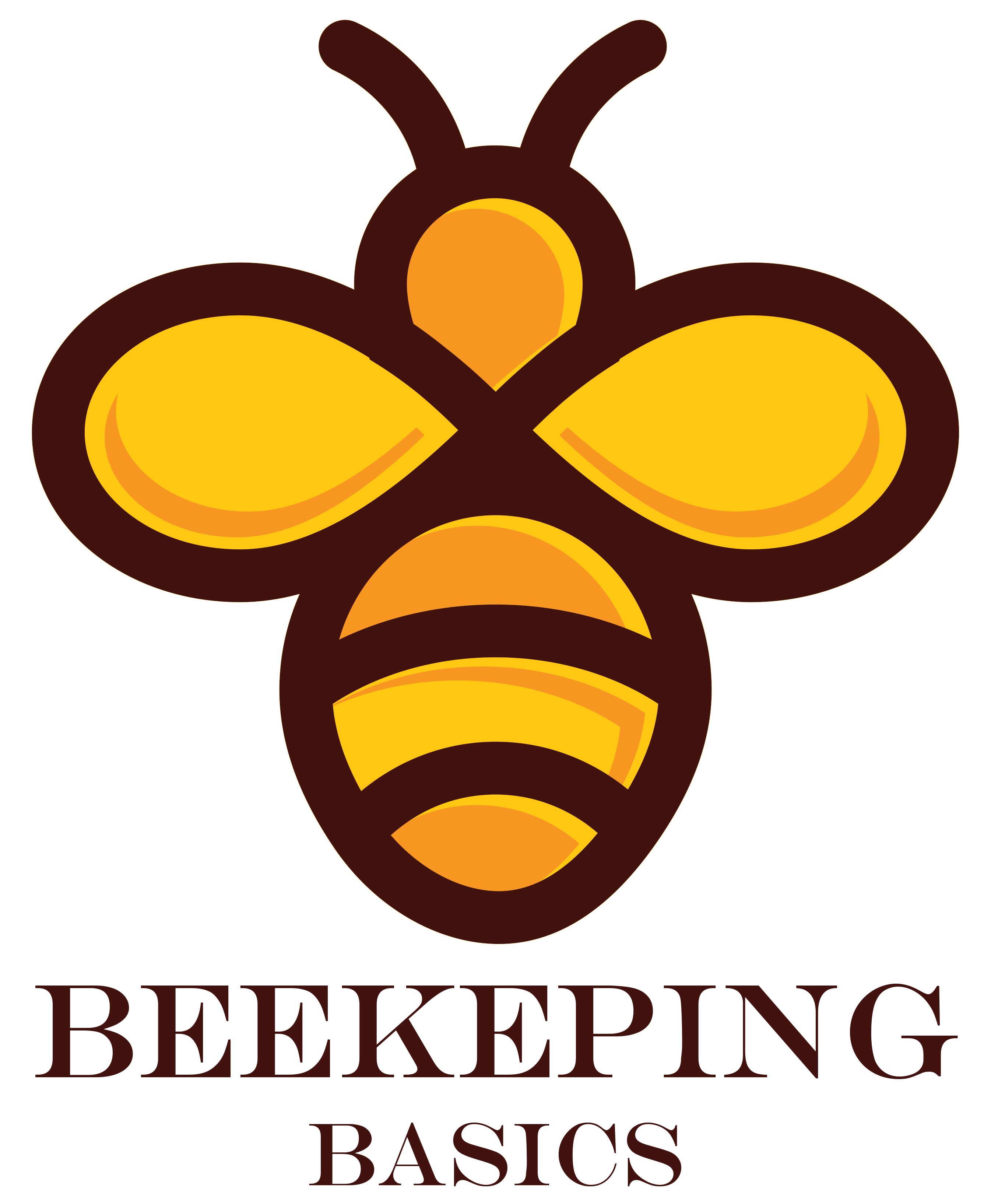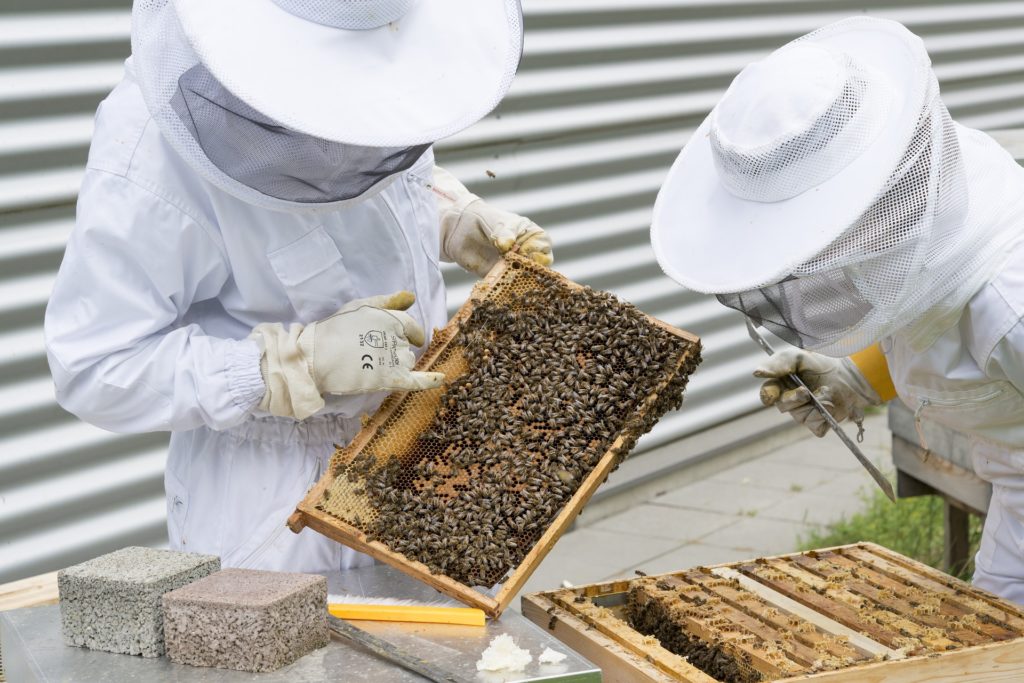Every person has its own reason for starting beekeeping. Someone does it only for the honey, someone has beekeeping as a hobby and someone really does it with the purpose of helping and saving the bees. No matter the reason, every beekeeper surely needs help and some additional advice. Especially in the beginning! From the start, everything is new and most of the beginners are unfamiliar with everything that is related to beekeeping. Acquiring the experience, every beekeeper becomes better and better. However, beekeeping is not something for what we can say at a certain point in time that we have learned everything. There is always something more to know and something that can make us a more successful beekeeper.
Here are some tips that will help you become a successful beekeeper!
1. The best environment for bees
Because honey bees originate from the tropics, they thrive best in sunny and warm environments. The cold climates make bees sensitive to diseases and they reduce their lifespan. This is yet another reason why beekeepers lose their colonies in winter. In order to help the bees thrive, make sure that the bees are placed in a location where there is sunlight. However, the hive should have some shadow as well, because some diseases may appear because of too much sun as well.
2. Do not hurry for the honey
Many beekeepers expect to take out honey in the first year of beekeeping. However, this should not be rushed. The main reason for this that the first year is not difficult only for you. The new colony will also face some difficulties. When you first start beekeeping, the bees are developing step by step, getting used to everything around them. They build their stocks of honey for their own survival which is the most fragile in the beginning. So, if you take out their honey in the first year, you are facing the risk of losing your entire bee colony due to starvation. The bees will not have sufficient amounts of nectar and will not be able to replace the lost honey. In any case, this again depends on the climate and environment where your bees are located.
3. Bee-friendly plants
Bee-friendly plants provide the bees with plenty of nectar and pollen. Some of these plants will happen to grow naturally near your hives, but others you will need to plant yourself. You should plan which plants to grow. They bloom and develop differently, so make sure that you plant enough. It is important that your bees have a constant supply of nectar and pollen. Read more about bee-friendly plants which are good for bees’ health here.
4. Do not forget to inspect your hives regularly
Bees are really active and they develop quickly and effectively. For example, an active hive can swarm and move out, run out of space or change a queen within 2 weeks. You should do the inspection regularly (every 7 or 10 days). You should open the hive, check if space is well utilized, and inspect each frame of brood. Do not worry if your inspection takes a lot of time in the beginning. It will get faster and better as you gain more experience. With a good effort, you will surely become a successful beekeeper.
5. Acquire your equipment early
It is really good to acquire all of the bee equipment that you need before the arrival of the bees. It will be great if you can get everything that you need approximately a month before the arrival of the bees. This will help you not to face shortages and delays of the work that needs to be done. If you order your equipment online, do not forget to take into consideration the shipping time.
6. Used vs. New beekeeping equipment
If you have to choose between used and new beekeeping equipment, always choose new! The old and used equipment may carry viruses and diseases from the previous colonies. Another useful advice is to replace the frames and foundations every 3 to 5 years. When you use the equipment for a long period of time it is possible that it will carry all the contaminants that it has acquired through the years.
Of course, the main factor when making this decision is money. Even though new equipment costs more in the beginning, it is cheaper in the long-run. It will give more benefits for the following several years of using it. If you decide to buy cheap and not be careful at the beginning, you may lose entire colonies.
7. Beekeeping needs and takes time
Nowadays, there is so much information available about beekeeping. Additionally, people share their experiences and every one of them has its own, unique one. However, beekeeping needs and takes time. You need to learn as much as possible and remember that there are different factors influencing every story you hear and everything you read. The most important thing for becoming a successful beekeeper is to hear everyone’s opinion but learn everything by yourself. You should be willing and ready to commit. Start small and continue growing step by step. You will see and learn everything that you need related to your bees.
8. Swarming is natural
Swarming is a part of the natural phenomenon in bees. It is simply a part of their existence. If a bee colony splits into two parts, one will leave the beehive and the other will stay. Every part of the swarming process is natural for the bees. You do not need to be afraid of this and you should expect it. The only thing you can do is to watch for the signs of swarming. Read more about swarming here.
9. Learn which bee colony is healthy
In order to build a good bee colony, a strong population is mandatory. The queen propagates the bee colony. It lays a complete brood pattern and will skip a few cells, covering as from 8 to 10 frames. A healthy bee colony has more worker brood than drone brood. The bee population of a healthy colony can go up to 75.000 bees during the summer. This will consist of the field bees that make about 30.000 of the bee population. All the frames in two hive bodies and one or more frames in supers should be fully covered by the bees.
10. Bees need water too
In a partially shaded area, the bees should have a good source of clean water. This should be near their hive for easy access. A successful beekeeper should never assume that the bees will fully provide their water needs themselves. On average, a strong colony requires a liter of water during warm days. You should make sure to have water in the area before you bring the bees there. If not, the bees will look around for water themselves, and once they get used to a different location it will be extremely hard to divert them. Please note to establish something that will float on the water, in order to make sure that the bees will not drown.


Thank you!! This information is invaluable as I’m trying to learn as much as I can about beekeeping. My goal is saving the bees (I love them!), the honey is a bonus. Now, I live in an urban area and one of my main concerns are pesticides. That wasn’t mention in this article. What are your thoughts on that??
Pingback:Mistakes Beginner Beekeepers Make In Winter